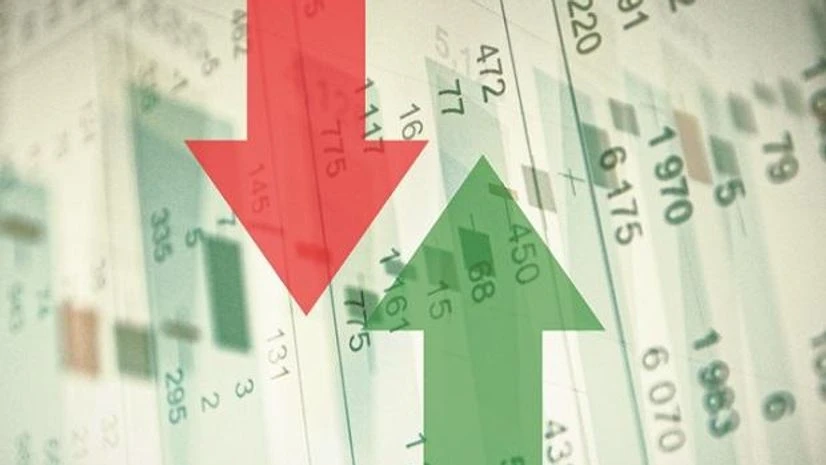Asian shares logged moderate gains on Thursday after Wall Street stabilized following a sell-off in tech stocks the day before.
Tokyo's Nikkei 225 rose 1per cent to 26,642.88 after the Bank of Japan wrapped up a policy meeting with no major changes, maintaining its near-zero interest rate stance despite a sharp weakening of the yen against the dollar and rising costs for many imported commodities.
The dollar rose to 129.70 Japanese yen after the BOJ policy announcement, which indicated the central bank remains determined to keep lending conditions ultra-lax to help support the sluggish economy. It was trading at 128.43 yen late Wednesday.
The U.S. Federal Reserve has begun raising interest rates to counter surging inflation and investors have been selling yen to seek higher returns in dollar-denominated assets.
Chinese benchmarks recovered from sharp drops as officials highlighted efforts to counter the impact of pandemic shutdowns in many cities.
The Shanghai Composite index gained 0.6per cent to 2,975.28 and Hong Kong's Hang Seng jumped 1.4per cent to 20,218.39.
More From This Section
Strict lockdown measures in China have added to concerns about slowing growth because of damage to the world's second-largest economy. The flow of industrial goods has been disrupted by the suspension of access to Shanghai, home of the world's busiest port, and other industrial cities including Changchun and Jilin in northeast China.
Beijing has been conducting mass testing this week as it decides on what degree of controls to impose in the capital.
Elsewhere, the Kospi in Seoul added 0.5per cent to 2,953.09. Australia's S&P/ASX 200 surged 1per cent to 7,333.50.
Wall Street ended Wednesday with a lackluster finish as traders braced for more earnings reports from major U.S. companies this week.
The S&P 500 saw most of a midday rally evaporate and wound up with a gain of just 0.2per cent, at 4,183.96. The Dow Jones Industrial Average also added 0.2per cent, to 33,301.93. The Nasdaq was barely changed at 12,488.93, while the Russell 2000 fell 0.3per cent to 1,884.04.
The indexes rallied to a strong finish late Monday only to slump on Tuesday. They are all down 1.5per cent or more so far this week.
Software giant Microsoft rose 4.8per cent after reporting strong profits for its most recent quarter. Payments processing giant Visa jumped 6.5per cent after reporting a surge in profits fueled by a large jump in spending on the company's namesake credit and debit card network.
Alphabet, Google's parent company, fell 3.7per cent, after posting its slowest quarterly revenue growth since 2020. Facebook's parent company, Meta Platforms, jumped 14.6per cent in after-hours trading following its latest quarterly earnings, which topped Wall Street's estimates.
Investors were also focused on earnings from industrial companies and various retailers. Boeing slumped 7.5per cent after it reported a loss that was far worse than Wall Street expected. Chipotle rose 2.6per cent after reporting solid financial results.
Twitter, Apple and Amazon will report their results on Thursday.
The latest round of company earnings comes amid lingering concerns about rising inflation and plans from central banks to raise interest rates in order to temper the impact of higher costs on businesses and consumers. Investors are studying how companies have fared amid supply chain problems and higher costs and how consumers are dealing with higher prices for everything from food to clothing and gas.
Natural gas prices surged as much as 24per cent over the last day in Europe and the euro weakened after Russia said it would cut off supplies to Poland and Bulgaria. Natural gas and oil prices already were rising as the pandemic eased and demand increased, but the Russian invasion of Ukraine has added to price increases. Crude oil and and natural gas prices have jumped in 2022, pushing up costs for gasoline and heating.
Oil prices fell back Thursday. U.S. benchmark crude oil lost USD1.27 to USD100.75 per barrel in electronic trading on the New York Mercantile Exchange. It picked up 32 cents on Wednesday to USD102.02 per barrel.
Brent crude, the standard for pricing international oil, shed USD1.41 to USD103.54 per barrel.
The euro slipped to USD1.0540 from USD1.0560.
(Only the headline and picture of this report may have been reworked by the Business Standard staff; the rest of the content is auto-generated from a syndicated feed.)

)
